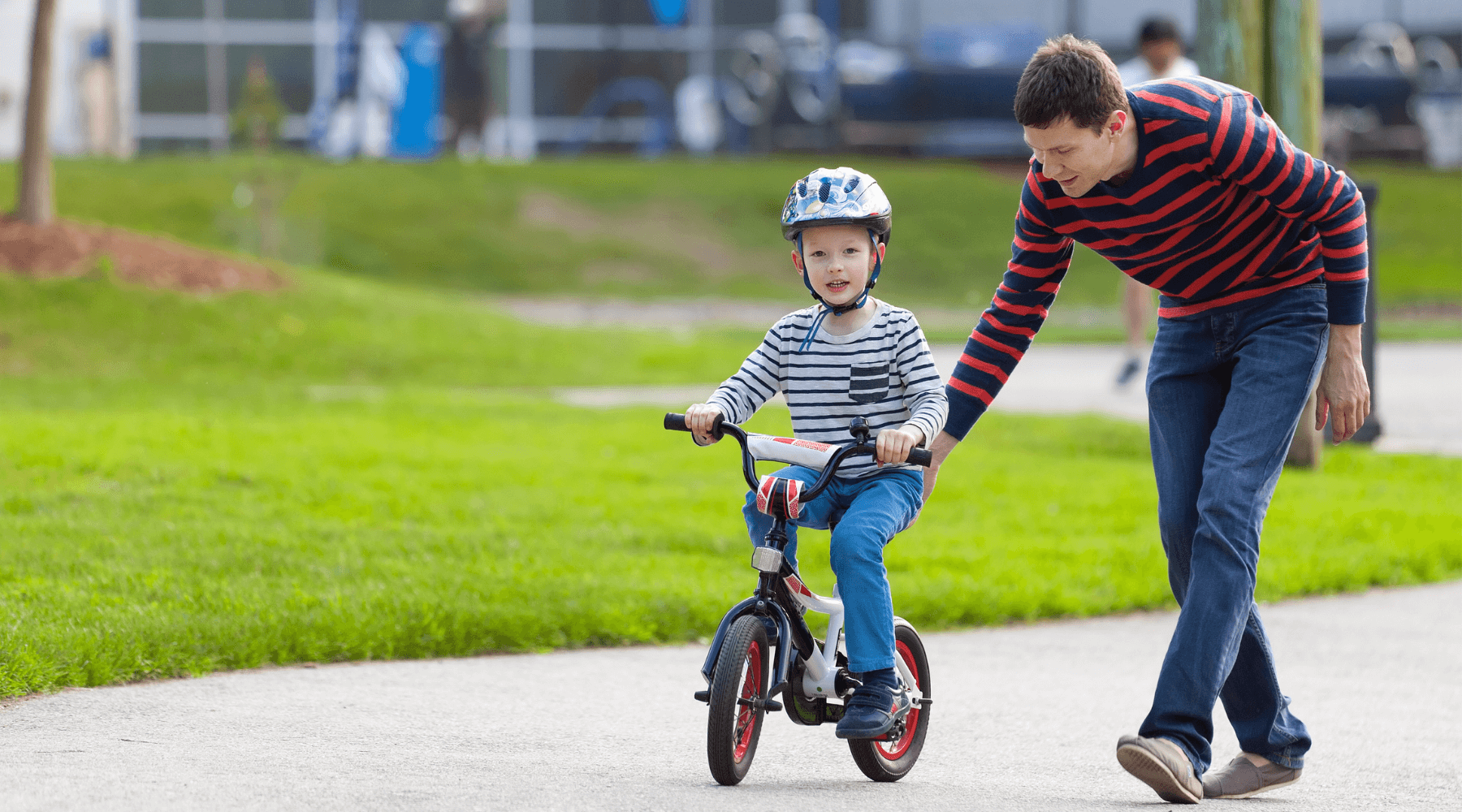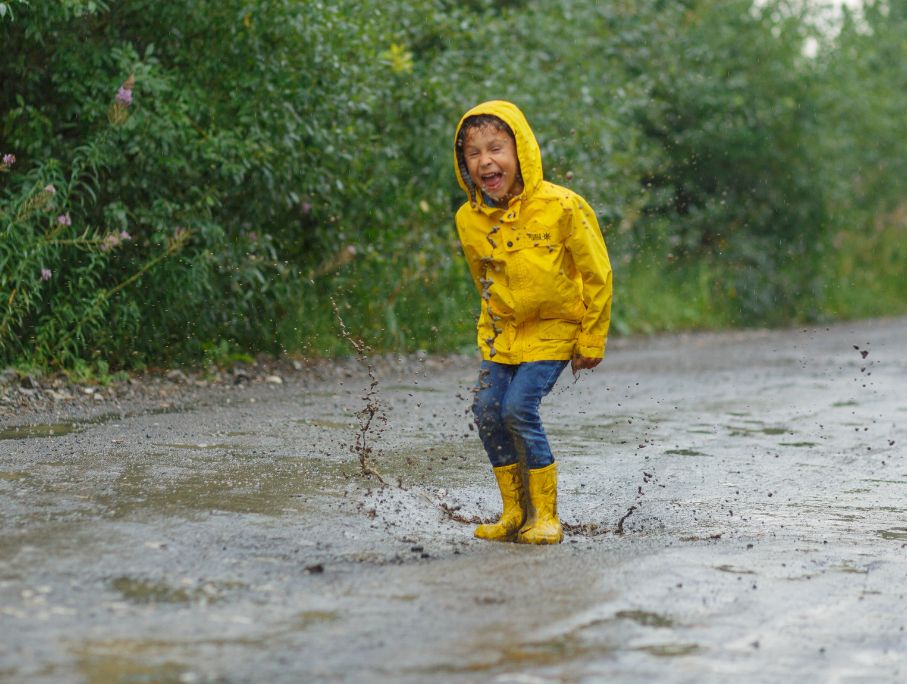
We all want our children to experience happiness and success, regardless of the direction their lives may take. Clinical psychologist and family therapist Andrew Fuller outlines four essential skills that parents can nurture to support their children in achieving success.
Little kids are a bit like roosters – they get up early and make a lot of noise. Then they start to ask weird questions like, ‘Why aren’t frogs purple?’ or ‘Do clouds talk to one another?’
Children’s brains are like sponges soaking up all they can about the world. Learning is the best and most fun game in town. This is driven by the wonderful imagination and creativity of children. Our aim is to keep it that way.
Four ingredients of success
Your love for them helps them to feel safe and secure and is the basis for everything.
Parents’ language and perspective are incredibly influential. They provide a lens through which their children see the world.
There are four additional skills that every parent can help their child develop to provide the basis for success in school and in life:
- Showing up
- Opting in
- Being interested
- Thinking clearly
Showing up
It’s hard to be successful in any area of life, if you don’t show up. Being present is pretty well an indispensable aspect of success.
Showing up ready for action takes care and preparation. Being well prepared requires sleeping well, eating well, moving well, laughing well, loving well, and living well.
This applies to you and your children. Being there for your children makes a gigantic impact. When we aim to keep ourselves in tiptop form, in the best state we can, we show our children that looking after ourselves is important.
Families need routines to help everyone not just survive but thrive. This means the adults need to be (kindly, but clearly) in charge.
Now, before parents go on a collective guilt trip for not having been attentive to every single micro-second of their child’s lives, we need to remind you of Vilfredo Pareto. You might be asking, ‘Who?’ Pareto worked out that 80 per cent of our impact comes from 20 per cent of what we do, known as the 80/20 principle.
Great parents don’t have to be available at every moment. They do need to be dependable and present for their children when they are with them. This involves stepping back from your phone, showing up, and getting involved.
None of us would ever want to give our children the impression that we value our devices more than our time with them.
The way we show up is also important. It makes such a difference if we greet our children (and each other) with kindness and enthusiasm. Practice exuberant greetings.
When there are problems or differences of opinion, showing up with a clear intention to work things out rather than to find out who is to blame demonstrates that we can get over difficulties and empowers children to know that they can solve issues between people when they arise.

Opting in (rather than opting out)
Having a go, having at crack, nothing ventured-nothing gained, this is the spirit of trying things out.
Hesitancy can easily slip into avoidance before collapsing into fear. If this happens, we have a child who lacks confidence and restricts their activities to those they already feel competent in.
Taking on challenges is good for us. It not only builds determination and courage, but moving into action in new areas helps us to lower our levels of anxiety. Taking challenges also strengthens a specific part of our brain called the anterior mid-cingulate cortex, which is related to willpower.
Being interested
I’m not sure if curiosity has ever been solely responsible for a cat’s demise, but the lack of it has certainly stifled many people’s lives.
Build curiosity and creativity in your child by being intrigued. Find new ideas. Discover new concepts. Seek out new positive opportunities and experiences.
Thinking clearly
Once we have children showing up, opting in, and getting interested, we can really help them develop their thinking skills.
One of the quickest and most cost-effective ways to improve your child’s life is to help them think more constructively. Doing anything better requires effective thinking.
This is one of the best lessons of life. It is much more important than getting the best marks or being the youngest to achieve anything.
Smart thinking helps more people out of tricky situations than determination, luck, positive thinking, or motivation.
I can’t compress an entire course on thinking into a single paper, but here are a few key ideas.
To teach thinking, parents don’t need to have all the answers, but it does help to have a lot of great questions.
Not every thought is true
It is estimated that people have about 90,000 thoughts every day. Many of those thoughts are valuable, but some are just rubbish. Some of our thoughts are a waste of time. They do not deserve to be believed in. Some should be taken out the back and thrown out.
The way to get good ideas is to get lots of ideas and throw away the bad ones
- Linus Pauling
Get to the heart of it
Think again
Teach your child that while their first thought is great, if they take some time and delve deeper, their second thought will often be even more wonderful.
You can grow your brain
Our brains are alive and growing all the time. Over time, they wire themselves to become more connected as we think and learn. Sometimes, thinking feels hard. It is like a sore muscle after exercise. While it feels tender, it is growing and getting stronger. Struggling with new ideas makes us smarter.
Sorting into groups
A lion, a tiger, a kangaroo, and a horse are all…?
Which one doesn’t belong – a spoon, a plate, a bowl, or an antelope?
Learning to identify how to group different things together or to see how something might be different from the others is the basis of identifying similarities and differences. This is one of the most powerful ways of increasing marks at school and expanding memory.
What’s the main idea?
This question sets up success. The world has a deluge of information and a scarcity of wisdom. Being able to pick out the main message or idea builds understanding and knowledge.
What is that story/ show/ game/ movie about?
What is the main message?
Who is the most important character?
What was the most important moment?
This is the basis of prioritisation. Being able to determine the importance of different tasks or ideas is not only an essential thinking skill but also reduces anxiety.
Next step thinking
Learn that actions have outcomes or consequences. This might seem obvious, but linking actions with outcomes helps (a lot!).
If we do … what do you think will happen next?
If we did (something different) what do you think might happen?
Next step thinking puts you in the driver’s seat of life because you are able to predict likely outcomes and reconsider what to do.
If yes, then…?
Just as actions and outcomes are linked, ideas are also connected. Most complex ideas are a web of connected smaller ideas. A simple example is that flowers are blooming, the temperature is getting warmer, and there is blossom on the trees – it sounds like springtime.
In a world of opinions, develop curiosity.
Aim forwards, plan backwards
This is like creating thinking or planning trails. Start with the end in mind, and plan backward the steps to achieving that outcome.
Weighing up probabilities
This is a big one. Asking children which option is the most likely helps them to think in terms of probabilities. If they are reluctant, ask them to make a guess and then ask them, ‘What makes you think that?’
Daily weather forecasts are a way to help children begin to understand probability. ‘What are the chances of rain today?’

Ask the essential questions and go deep
Get it wrong in order to get it right
Clear the clutter- seek out the essential information. As the fictional detective Sherlock Holmes once stated, ‘Once you eliminate the impossible, whatever remains, no matter how improbable, must be the truth.’
Most great ideas had very small beginnings that built over time. Very few great ideas or inventions came the first time. People had to take the time, make mistakes and then, figure them out.
John F. Kennedy proposed on May 25th, 1961, that by the end of the 1960’s a person should have been to the moon and safely return. On May 26th, the National Space Council did not suit up an astronaut. Their first goal was to hit the moon. Three years later, NASA smashed Ranger 7 into the moon at a velocity of 5,862 miles per hour. It took 15 iterations before the successful moon landing of Apollo 11 on July 16,1969.
Deepen conversations
What makes a good question? Asking good questions relates to thinking and creates opportunities for learning. Open-ended, as opposed to closed questions, are generally advocated as a means of pushing beyond knowledge and skill and opening up discussion.
Encourage a love of learning: Parents can cultivate a love of learning in their children by reading to them, providing access to books, and exposing them to a variety of learning experiences. Discussing new ideas and inventions shows children that learning is something we all do throughout our lives and that it is interesting.
Parents can also show interest in what their children are learning at school and help them see the relevance of what they are studying to their everyday lives.
Copyright Andrew Fuller.
Like this post? Please share using the buttons on this page.
Stay up to date with our newsletter hereAbout Andrew Fuller
Andrew is a clinical psychologist and family therapist, author and speaker, and a regular contributor to The Parents Website.
More tips about how to maximise your success can be found at:
Andrew’s websites
www.andrewfuller.com.au
www.mylearningstrengths.com (45,000 young people in the past year discovered their learning strengths and found how to increase success and motivation).
Books for parents
Tricky Conversations
Tricky Teens and Emerging Adults: A survival guide for parents
Unlocking Your Child’s Genius: How to discover and encourage your child’s natural talents
Books for teachers
Guerilla Tactics for Teachers: The Essential Classroom Management Guide
Work Smarter, Not Harder: Study skills for students who dislike homework
Tricky Conversations: How to have less conflict and more peace in your life
Neurodevelopmental Differentiation: Optimising Brain Systems to Maximise Learning



